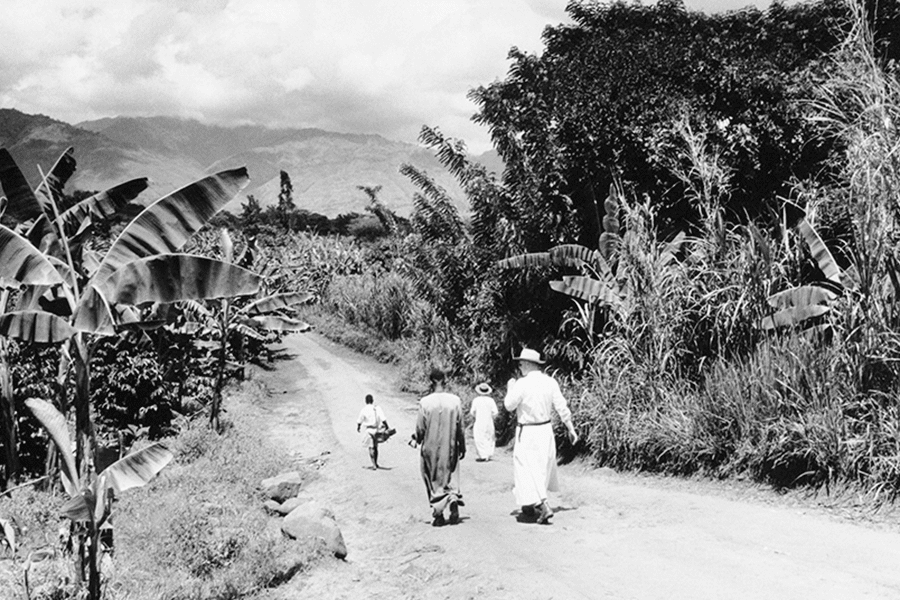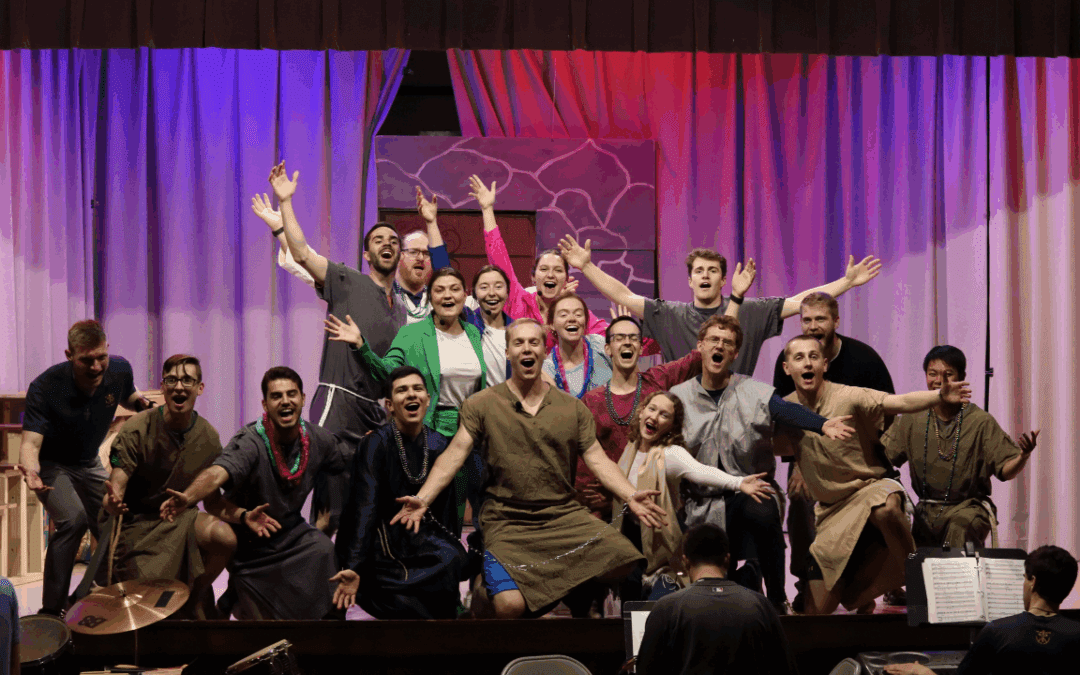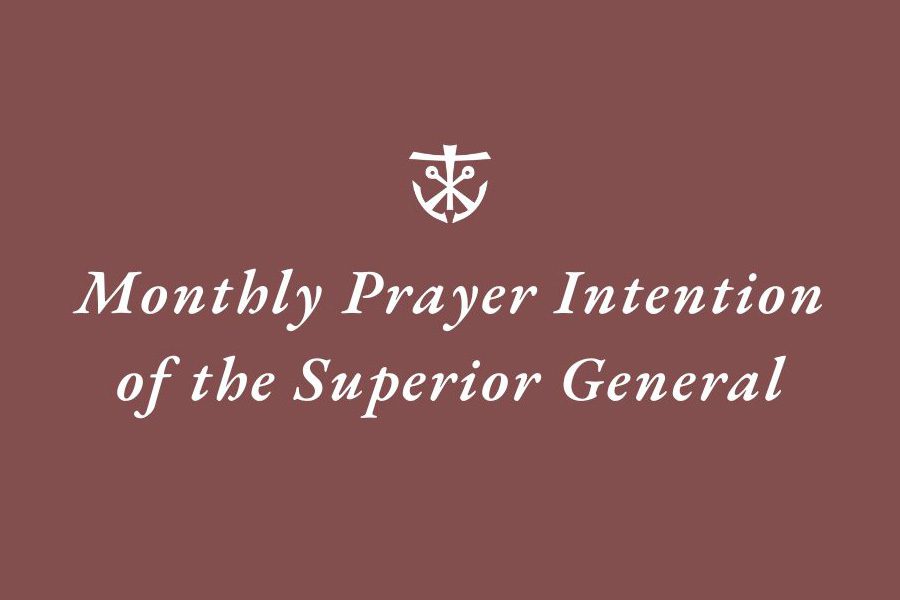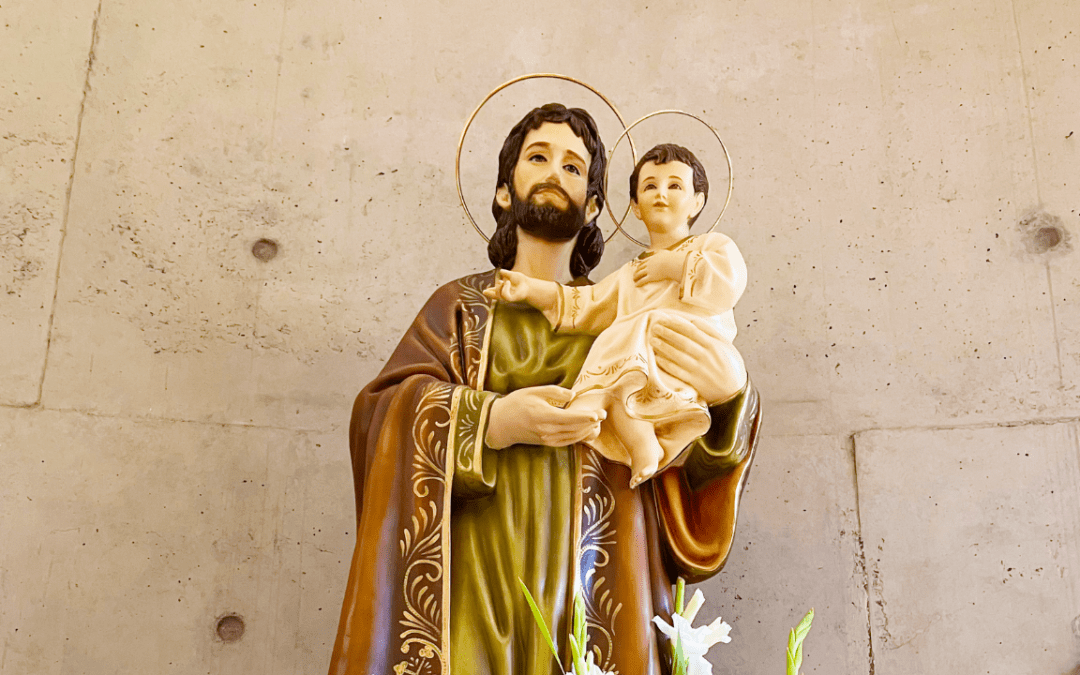As members of a religious congregation, Holy Cross priests and brothers have always professed the vows of poverty, chastity, and obedience, but did you know that there was once a Fourth Vow?
Until 1968, Holy Cross religious had the option to profess an additional vow as part of their Final Vows to the Congregation of Holy Cross. It went as follows:
“I will go anywhere in the world that the Superior General may wish to send me.”
Simple, straightforward, and quite extraordinary. By professing those vows, they could be plucked from whatever ministry they were serving in and sent to a country where they did not know the language, they did not have close friends, they did not have all the comfortable patterns that make up “home.”
Can you imagine living with such radical abandonment to the Holy Spirit? Even more so, can you imagine living with such radical abandonment to the decision making of the (fallible, human) Superior General of the Congregation of Holy Cross? To have such abandonment, both spiritual and temporal, is probably striking to those of us who have lived in cultures where individual autonomy reigns supreme.
The Fourth Vow no longer exists as an option in the Congregation, in part because regional Provincials did not want their men serving in ministries to be plucked away from them by the Superior General. Still, the Fourth Vow is a distinct feature of Holy Cross history, a feature that confirms Holy Cross’s longstanding mission and identity as an apostolic missionary congregation.
Remnants of the Fourth Vow remain with us today, in 2023. For instance, all Holy Cross religious nowadays travel to another culture, usually another country, during their formation. I had the good fortune of assisting 6 Holy Cross seminarians with their preparations to and reflections after traveling to international mission sites this summer. Upon their return, we at the HCMC joined Moreau Seminary Rector Rev. Jim Gallagher, C.S.C., for a debrief retreat in LaPorte, IN.
Over my three days with them, I was touched by their reflections. Several men expressed gratitude at being able to administer the Eucharist to a hospitalized Holy Cross missionary who had been “doing the Gospel” in relative obscurity for decades.
Another man in formation recounted a story of noticing how he related to a young girl in Bangladesh less as an older brother and more a spiritual father, something new for him. I, a biological father of young kids myself, was intrigued by the realization that every priest must have some instance when his ministerial role strikes him not simply as one of peer-to-peer service, or mentorship, or collaboration, but of spiritual fatherhood.
I heard, too, stories of discomfort, uncertainty, and challenge. The ways our seminarians had to adjust to other cultures’ approaches to time and timeliness challenged them. Fumbling through conversations in Spanish, French, and Bangla left them mentally drained and on the receiving end of some innocuous jokes. I am confident that in verbalizing their challenging experiences at Holy Cross missions, these men, who will with God’s grace be Holy Cross priests and brothers, will be more attentive to people who are on the peripheries—the person in a parish meeting who has a good idea but has a tendency to get bulldozed in conversation, the new immigrant in need of a welcoming pastor, the Holy Cross religious from Uganda who has never been to the U.S. and needs help navigating his university’s bureaucracy. They may not have taken the Fourth Vow, but today’s Holy Cross men in formation are still being formed into “another Christ,” as Blessed Basil Moreau might say, through their experiences on mission.
Another remnant of the Fourth Vow can be seen in Holy Cross’s international representatives at World Youth Day in Lisbon from August 1-6. Fr. Tom and I were fortunate to represent the Congregation alongside seventeen other Holy Cross religious from India, Bangladesh, Uganda, Ghana, the U.S., and Brazil. Between the eighteen of them, they spoke 23 different languages–a testament to Holy Cross’s commitment to making the Christ known to all people.
The highlight of our World Youth Day experience was the Holy Cross gathering of student groups, parishes, priests, brothers, and sisters. Young pilgrims met others from around the world, sang, and heard inspiring talks from Br. Paul Bednarczyk, C.S.C., and others. Br. Paul’s remarks stayed with me. He drew a connection between the Blessed Virgin Mary and Blessed Basil Moreau. He explained that just as Mary’s arose and went in haste to do God’s will, so too did Blessed Basil Moreau when he sent missionaries to Algeria, Poland, the U.S., and Canada. We can only be grateful for Mary’s and Moreau’s fidelity to Christ’s call.
Most recently I sat down with Fr. Frank Quinlivan, C.S.C., who has given 35 of his 61 years as a Finally Professed member of Holy Cross in service to the people of Bangladesh. He is by no means a “remnant” of the Fourth Vow, but the realization of it. For the past 20 years, Fr. Quinlivan has led the St. Marianne Cope Young Women’s Education Project, which provides tuition assistance and educational supplies to women who would otherwise be unable to pursue education beyond the 10th grade level.
Fr. Quinlivan recently handed the directorship of this program to a sister, thereby ensuring that his profession of the Fourth Vow continues to bear fruit, continues to make Christ known, loved, and served in Bangladesh.
As we at the Holy Cross Mission Center celebrate our Centennial throughout 2023, we must thank men like Fr. Quinlivan, that their humble service and abandonment may inspire Holy Cross missionaries in the 100 years to come.
By: Michael Jezewak, Assistant Director for Community Engagement




